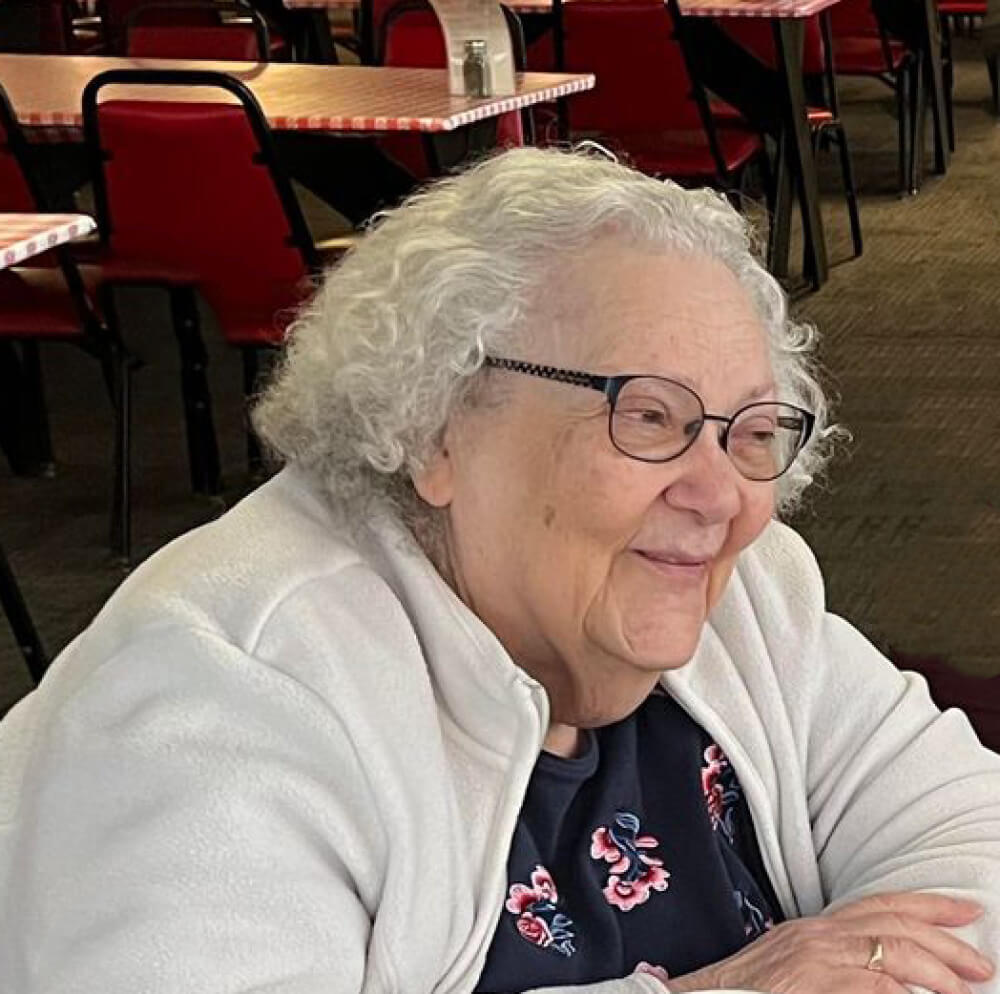Ruth Nelson struggled with her new breast cancer diagnosis mentally and physically. On treatment, her cardiac health faltered, her blood pressure spiked, and she experienced an unexplained episode in which she briefly lost her speech. And on top of that, she felt as if she were “a problem to be managed” by her friends and family.
“I did not feel like myself,” she explains.
Nelson is a woman who has lived a full and active life. In the 90s, she once travelled to Mongolia to interview locals, and as a systems engineer for 30 years she was at the forefront the developing computer and internet security field. Now 82 and in retirement, she has explored everything from meditation to weightlifting, pastel paints, and abstract photography.
Recognizing the complicated challenges Nelson faced and how they affected her quality of life, her oncologist, Caroline Block, MD, facilitated a referral to the Program for Older Adults with Breast Cancer Program, a Dana-Farber initiative offering tailored support to older patients. Through this program, Nelson met geriatrician Tammy Hshieh, MD, MPH.

What is a geriatrician?
As a geriatrician at Dana-Farber, Hshieh is in a unique position. While many Dana-Farber providers have expertise in the nuances of their own unique fields, Hshieh specializes in managing the big picture for patients as they age. Just as a child would see a pediatrician who specializes in the health of children, people above age 65 can benefit greatly from seeing a geriatrician who specializes in their age group.
Each patient is unique and brings a different level of fitness and psychosocial support to the clinic. Hshieh prioritizes understanding each of these aspects of life fully. From there, she can help manage many obstacles that might impede quality of life, such as frailty, dementia, and functional decline.
These symptoms are complicated by cancer and its treatment which both come with side effects. Chemotherapy, for example, can impact cognition, a side effect often called “chemobrain.” Treatment can also worsen mood issues. A diagnosis alone is difficult to face emotionally, but side effects like nausea, dehydration, pain, and loss of sleep make it even harder to stay positive. To combat this, Hshieh makes recommendations on how to manage those side effects with medication and lifestyle changes.
Nelson’s journey to recovery
Nelson’s diagnosis, the stress coming from people around her, and a hospitalization that occurred around the same time, triggered trauma from her past and awakened anxieties that caused panic attacks. It became unmanageable.
Working with Nelson, Hshieh and Block began to adjust her prescriptions and medication dosage. Nelson also found success with an antihistamine in managing her anxiety. Prescribing medications to patients in this age range can be tricky because they often come to Hshieh using multiple medications to treat one condition. Physicians call this polypharmacy, and the additional side effects can be a burden. Working with Hshieh, Nelson ensured she didn’t take unnecessary drugs and avoided adverse effects. “She was my advocate,” Nelson says.

Hshieh also set Nelson up with Dana-Farber social worker Leora Lowenthal, MSW, LICSW to talk about and explore the underlying causes of her anxiety.
Hshieh works in several clinics across Dana-Farber including Gastrointestinal Oncology, Hematology and Adult Survivorship. This partnership with oncology offers a unique opportunity for consistent symptom management, which is often difficult for outpatient primary care physicians. Being embedded in the oncology team allows Hshieh to coordinate care for her patients and ensure that they and their caregivers feel equipped to make decisions about their treatment.
Another key referral from Hshieh included an appointment with a neurologist to figure out why she lost her speech. Nelson’s neurologist revealed that her anxiety and momentary loss of speech may be connected to complex migraines rather than the stroke that emergency room physicians had posited. Massachusetts Institute of Technology graduate and self-described nerd, Nelson appreciated this explanation. The new knowledge helped Nelson to move forward with confidence.
“That diagnosis helped tremendously,” she says. “Now, I’m able to advocate for myself.”
Hshieh’s role in the Program for Older Adults with Breast Cancer Program is not just about prolonging life, but also enhancing its quality. Through her clinical work and her research, she hopes to empower patients like Nelson to face cancer with resilience and dignity.
Today, Nelson is feeling much improved from even a few months prior. “My Dana-Farber team treats me as a human being,” she says. “It is so much more real than other doctors. That’s a giant difference, and that approach has helped me tremendously. I’m starting to feel like myself again.”

What a lovely story! I wish Ms. Nelson all the best with health and contentment. I’m glad she had the people and programs on breast cancer in older adults to help her live her best life. Thanks to her for telling her story, and for Dana-Farber for its expertise in bringing people what they need!